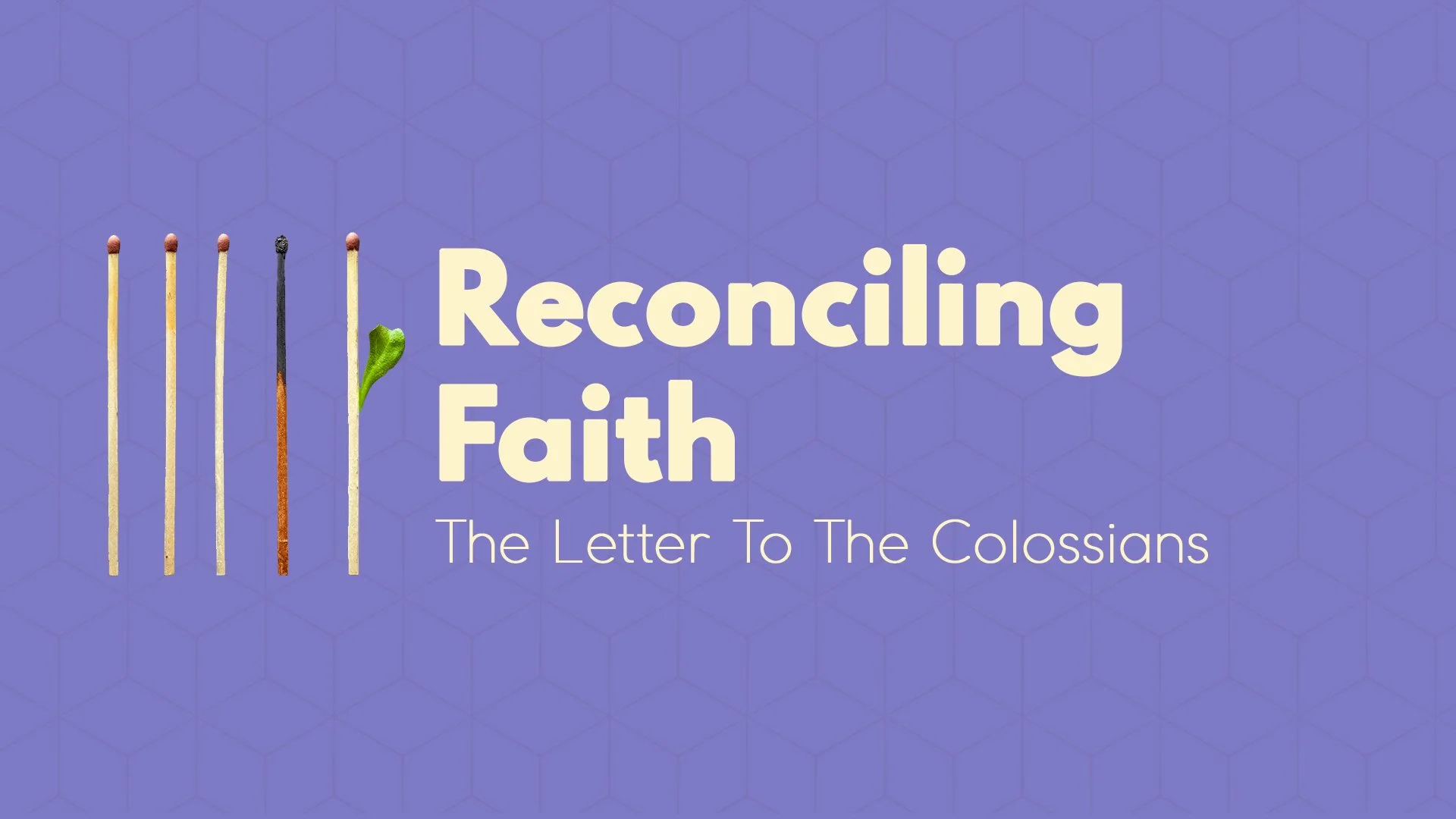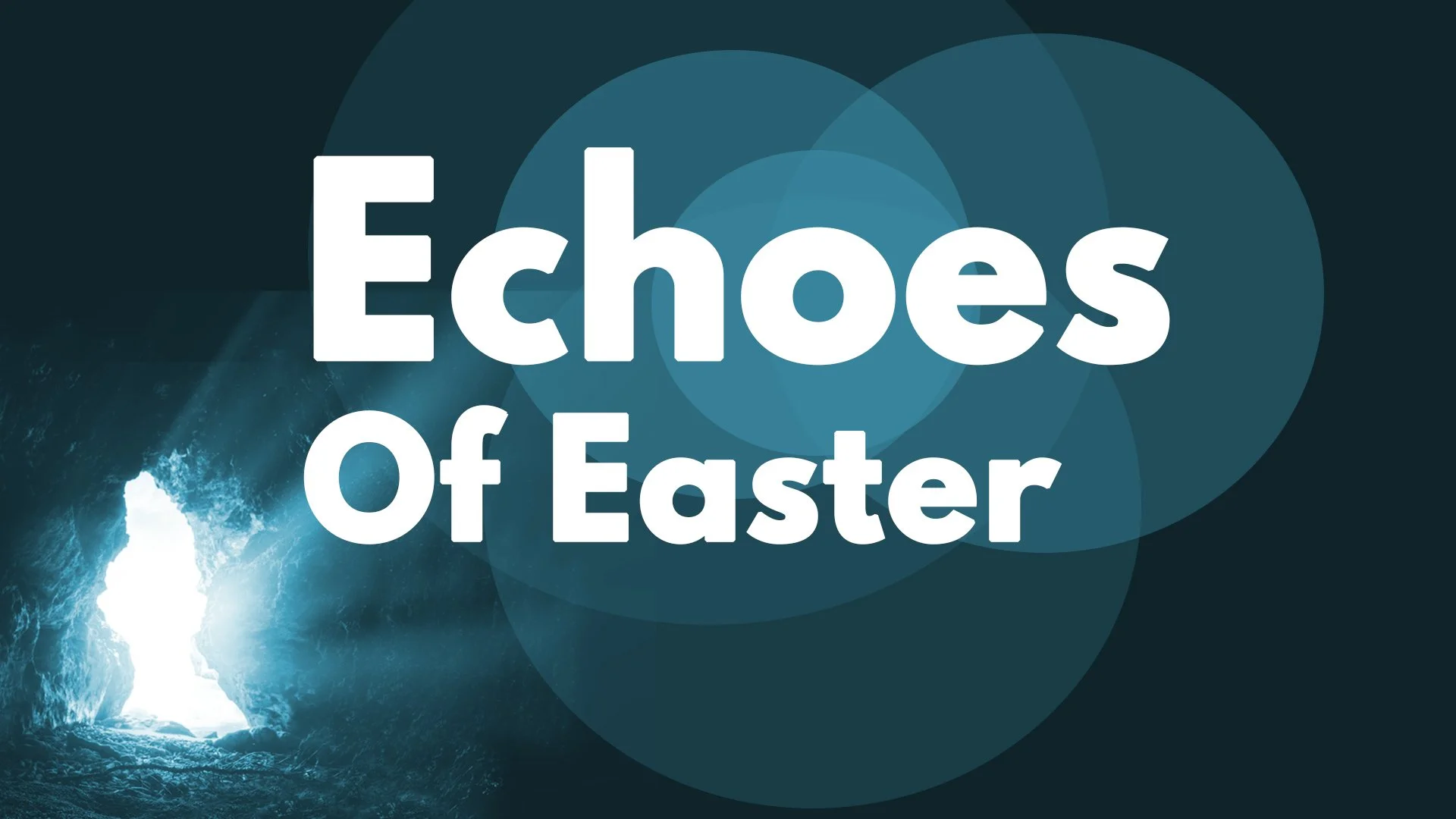How does baptism free us?
Holiness can sound like an out-of-reach word, and perhaps brings to mind images of monks and nuns in isolated abbeys. But the reality of holy living is much more grounded and gritty. This week, we consider the fullness of faith we’re invited into through baptism as we ask, “How does baptism free us?”
What do we mean when we say “Jesus saves?”
“Atonement” is the word we use to mean God’s work through Jesus that frees us from sin. But far from a settled science, it’s actually a realm full of theological theories. This week, we tackle the question, “What do we mean when we say ‘Jesus saves?’”
Do I need Baptism to be "saved?"
In John 3, we’re introduced to a phrase that is awfully loaded with baggage in modern times: “born again.” Let’s talk about it this week and unpack the question, “Do I need Baptism to be saved?”
Is Baptism Just a Personal Choice?
Baptism may appear simple, but beneath the surface we find a complex sacrament that leads us to many deep theological questions that get to the heart of faith. In this six-part worship series, we will address six questions in a journey towards understanding baptism in a Wesleyan way. This week, let’s talk about why private, backyard baptisms aren’t a thing at AUMC, as we ask “Is Baptism Just a Personal Choice?”
Losing Our Religion
In the Gospel of Luke, some good churchy people take issue with the kind of company Jesus keeps. And so Jesus offers three images--a sheep, a coin, and a son--who are lost and found; but not everyone celebrates this "good news." How do these parables shape our own understanding of our story, and the kind of love that God's movement is built upon?
Working and Weaving in the Trivial and Tragic
Blockbuster stories feature larger-than-life characters, breakneck action sequences, and out-of-this-world plot lines. Our lives can feel rather mundane by comparison. This week, we take a step back and consider how the story of Ruth reveals something wonderful about who God is and what kind of story God is telling.
Leave the Harvest, Change the Story
Desperate. Alone. Seeking to survive in a harsh environment. This is the life that Ruth and Naomi are living in Chapter 2 of The Book of Ruth, when the story takes a turn… they come across a field and a farmer that changes everything. This week, we take a closer look at Boaz, the humble farmer who displays the faithful virtue of generosity, and how his unharvested field can teach us to change the story for ourselves and others.
The Lost Art of Loyalty
Have you ever been surprised by loyalty? When you think of loyalty, what and who comes to mind? What makes us a loyal people? We’ll share an overview of the story of Ruth, whose loyalty to her mother-in-law and to God is exemplary, not because of stubbornness, but because of love. This week, we share an overview of the Book of Ruth, and examine the oft repeated show of loyalty from Ruth: “Where you go, I will go; your God will be my God.”
Putting Faith to Work
Sometimes a message has even greater meaning because of the messenger. Paul’s letter to the Colossians was delivered with a man named Onesimus, a former slave who carried a second letter from Paul to his former master. It’s all well and good to hear a good sermon preached about reconciliation, but what happens when we’re actually called to act? Let’s talk about putting our “Reconciling Faith” to work this week as we conclude this four-week study of Colossians.
How should my faith affect my life?
Does faith have a tangible impact on our daily life? This is the question at the heart of the third chapter in Paul’s letter to the Colossians. We’re not called to self-loathing, shame, or guilt, but we are called to personal transformation as God’s reconciling love continues to work within us. Let’s talk about it this Sunday, as we continue in our Worship Series, “Reconciling Faith.”
Is Jesus A Bad Influence?
Do you think Jesus would fit in nicely to most of our churches? In his letter to the Colossians, Paul makes the case that “going to church” isn’t really the same as having a Christian faith. In fact, following Jesus might just get us into trouble in our churches. This week, let’s talk about Paul’s case for a personal faith that lives in Christian community, and why rule-breaking just might be a fruit of the Spirit.
Journeying
A journey often includes new and exciting adventures. It may include traveling to other places, and it is an opportunity for a fresh start. Journeys usually require planning and begin with a first step – sometimes not a physical step but a step of faith that occurs when we overcome what may be stopping us from moving on in our journey.
Where are you on your faith journey? In our community, we have individuals just starting their journey. We encounter those who have reached a fork in the road and are trying to understand where their faith journey is leading them. Our community is filled with people who have embarked on a journey to read and study the BIble. Some of us are connecting our faith journey with specific calls to community, such as learning more about racial justice, immigration, or how we can help those who live in poverty.
Wherever we find ourselves in our personal faith journey, hearing stories of others’ faith journeys brings us closer to each other, encourages us to ask questions, and demonstrates that we are not alone in our journey. Today, we hear from three individuals and how their faith journey has led them to Arapaho UMC.
Echoes of Easter (Week 4)
After Jesus has washed the feet of his disciples and speaks of his betrayal, he shares a new commandment with his closest friends. He tells them to simply love one another as he has loved them and others will know that they are his disciples. Our students will lead us in worship and share how they have been able to experience God’s love and have had the opportunities to share God’s love with others, both inside and outside of AUMC.



















